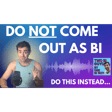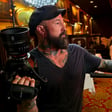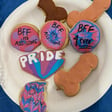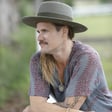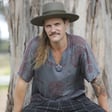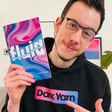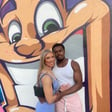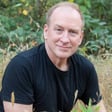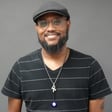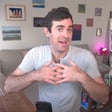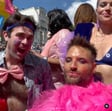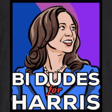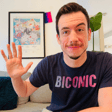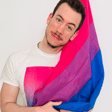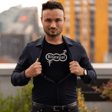Zencastr's Creator Network Benefits
00:00:00
Speaker
Hello everyone, I'm Rob from To Buy Guys, but first, looking to get your product in front of people who will love it? Promoting on podcasts like this one is the fastest growing advertising style in the world, and Zencaster's creator network can help you do it. Advertising on social media has seen a sharp decrease in success due to privacy issues. Think of all those times you were discussing a topic on social media and then were re-targeted to buy something related to it. Kinda creepy.
00:00:28
Speaker
Unlike social media platforms, Zencaster's podcast ads do not rely on traditional user ad tracking to succeed. They created an ad unit called PPM, podcast performance marketing, that allows for podcast matching using context. So brands are matched to the ideal podcasters whose content and audience are actually relevant to a brand's campaign goals without the user privacy infringement.
00:00:52
Speaker
Zencaster's mission is to make podcast advertisements as easy and accessible to business owners as Google and Facebook, but even more effective because podcast ads are 4.4 times more effective than display ads for conversions with 78% of listeners approving of podcast ads.
00:01:10
Speaker
See, don't you guys approve of this ad already? It's so nice and pleasant, because it's a host-read ad by me. Host-read ads are actually the most effective form of podcast advertising, and Zencaster works with podcasters to help create unique to them ad spots that create brand awareness and conversion. I can speak to this, I've been on the Zencaster Creator Network for a few months now, done a bunch of ads, and they have helped me through the process, answering all my questions and helping me make the ads whenever I need help.
00:01:36
Speaker
and they've connected us to some very cool advertisers who are right for our audience. So, interested in sponsoring this show or podcast ads for your business? Go to zen.ai-2buyguys0, that's z-e-n-dot-a-i-slash-t-w-o-b-i-g-u-i-s, the number zero, and fill out the contact information so Zencaster can help you bring your business story to life.
Meet Ruby Susan Mountford
00:02:15
Speaker
Hello and welcome to Two Bye Guys. I'm here today with a fellow bisexual podcaster. Ruby Susan Mountford is here with us today on Two Bye Guys. Welcome, Ruby.
00:02:27
Speaker
Hello, it's so nice to see you Rob, to actually see you and to meet my fellow podcaster. It's a, what is it like? I think bisexual podcasting, you mentioned like there's a, there's more of us now, but like I think every time when I was trying to pop up over the last five years, I'd be like, hello friend, hello friend.
00:02:44
Speaker
Yeah. Well, you guys were one of the few that existed before we got started. And we got started kind of because there was something missing in the space. But you guys have actually been doing it, not in the US, but over in Australia for a long time. That's right. We're down under. We're the bisexuals down under. I think we actually... Because our podcast is actually a live radio show on Joy 94.9, which is
00:03:10
Speaker
the LGBTIQ plus community station in Australia and it's one of only three 24-hour LGBTIQ stations in the world and it took them a while to get a bisexual show but they did and then we became one of the top performers in podcast downloads on our late night Tuesday radio slot.
00:03:29
Speaker
Wow, very cool. It's different. Yeah, I don't know of anything that we have like that. That's live radio. Anyway, by the way, Rubis' Manford is an LGBTIQA plus and disability advocate and public speaker. They're a radio and podcast host in Melbourne, Australia, as we've discussed.
00:03:47
Speaker
They're the co-host of the Triple Bypass podcast and vice president of the Melbourne Bisexual Network, among other bisexual and disability advocacy you've done before that that we'll talk about. So welcome again, Ruby. Before we go too much further and talk about all that stuff, how do you identify what pronouns do you use?
Identity and Advocacy Challenges
00:04:09
Speaker
Oh, thank you so much. Uh, I identify as bisexual. Shockingly. I'm a non-binary person. I'm also autistic. I use the term neurodivergent, but I do think it's important to say autistic as well. And I have ADHD and I'm a nerd. Those are, I think, my big identity. Um, I, uh, I'm a Dungeons and Dragons player. It takes up a lot of my life. Um, and I'm an advocate. I think those are the labels that I like and I am disabled. I, um,
00:04:36
Speaker
I think often in language we talk about personal disability, but I prefer person first language. So I'm autistic and I'm disabled.
00:04:43
Speaker
Cool. And so you've done a lot of advocacy work in both. I guess we'll get into how they might intersect. But actually, let's start with your bi identity, but then I'm curious how it intersected with those others. How did you realize you were bi, and what was that development like early on? Yeah. I think I was 15, 16, and I had a friend who identified as bisexual, and she
00:05:11
Speaker
made it clear she was quite keen. And I was just like, no, I'm a straight woman, as I was making out with my other, with his friend, like, you guys are gals being pals. And so I kind of realized I was bisexual because of her. And then when we broke up, I was the only other queer person I'd known, like, who neither went to my school.
00:05:37
Speaker
She actually had gone from identifying as bisexual to identifying as lesbian. And she said that lesbians don't date bisexual women. And so I kind of stopped feeling like I could really go into the spaces like minus 18 that were a space people who are under 18 to go to queer places. And also the scene was still pretty small. Insofar as like a lot of the gay bars, like if you didn't know people or you could really go to like the two gay bars we have, which are very kind of more for men.
00:06:00
Speaker
And also like the, if you weren't kind of presenting for a butch, people kind of wouldn't really read you as a queer, they just read you as a tourist. And so, but then also, uh, I started dating another woman when I was in my early twenties and then I saw a psychologist who told me that she thought I wasn't bisexual. I was just straight and really desperate for attention. And, um, because I wasn't having strong feelings about the person I was dating at the time in a romantic way.
00:06:25
Speaker
I kind of, I question myself a lot. And also because by that point, you know, the doubts about, are you really bisexual? That'd be such a common part of my experience ever bringing it up and or even just having it as part of a bio and I guess social media platform or something.
00:06:40
Speaker
Or if anyone remembers vampire freaks the um the platform for the alternative crowd for a little while But I believed her and so it wasn't until I ended up falling in love with another friend who lives in the United States and we met for the first time and Well, she she told me first and then she I was staying at her house and she just kind of let it forward and just kissed me and then ran away and
00:07:02
Speaker
And I was just like, okay, well, I'm not straight. Okay, I'm not straight. Okay. And it was honestly such a relief to know I hadn't just been performing, that I hadn't been the person I'd been kind of socialized to think that maybe I had been when I was doing it for attention. I was doing it for male attention. I was using queer women, which is how I'd been made to feel a lot. So, but honestly, as far as my identity and being proud of it, like,
00:07:30
Speaker
It wasn't something I really moved past. I accepted that I was bisexual. I didn't really see it as an important thing though. It wasn't until I started volunteering at Joy. I originally started doing front desk and I moved on to being a newsreader, that I moved on to doing current affairs.
00:07:46
Speaker
And they knew I was bisexual because I was a little obnoxious about it, just in that point of saying also bisexual when they'd say like lesbian and gay. So they asked me if I wanted to be on the bi show. They were starting up. And it really wasn't until I'd started talking to other bisexual people that I recognized how much I hadn't, like how much some of the things I thought I'd gone through alone were really common experiences and how much we needed and wanted a space to talk about it and how much joy
00:08:15
Speaker
Like our first few episodes of the podcast are rough, but we're very excited. Like, you know, I'll say that we're very excited because, and then it was also, it gave me a reason to be curious about bisexual identity, which I don't think is something I would have had otherwise. Like it's not something I would have gone and researched. I wouldn't have been looking at studies. I wouldn't have.
00:08:33
Speaker
found out all this data about how mental health is actually worse than the gay and lesbian community, and this massive correlation with non-binary identity and bisexuality, and this massive correlation with neurodivergence and bisexuality. And that's when it's come out later, I think, that I was diagnosed as an autistic person
00:08:51
Speaker
ADHD when I was 25. So about a year after I'd started doing radio with joy and like learning how to be proud of myself and my identity as a queer person, as a bisexual person, still wasn't quite sure on the gender stuff, but I was starting to kind of meet enough people to recognize I could explore that and question that in myself. But finding a pathway to pride as a bisexual person
00:09:14
Speaker
is hard and it takes, because no one around you in queer, amazing queer spaces really gets why that's important or even if they're bi themselves or pan or most gender attracted. And I think having to have made that journey as a bi person meant that when I made that journey as an autistic person, as a person with ADHD, I knew what to look for and I knew how important it was going to be to find people
00:09:37
Speaker
and to meet people and to be able to share our experiences and to be able to share the positives. Do you know the Dorothy Riddle scale of internalized homophobia? No. No, Riddle scale, officially hers is the Riddle scale of attitudes towards difference. And originally it was the attitudes towards homosexual people. So she put up this whole scale of the journey people go on to go from being repulsed
00:10:03
Speaker
by homosexual behavior to nurturing and to loving people. So the riddle scale is how other people perceive us. So it goes from repulsion, pity, tolerance and acceptance. And they're all negative emotions. And then the positive emotions are support to admiration, to appreciation and nurturance.
00:10:23
Speaker
Now what this was important for me was the fact that she actually identified tolerance and acceptance as negative. Because being tolerated and accepted still implies that something to tolerate and accept. It still creates a difference and a power imbalance.
00:10:39
Speaker
And I think this was important because I realized that acceptance was about as much as I'd ever hoped for as a bi person. And then this led to when I was, I had the opportunity to find, it's from an Australian guide called Not Round Here. It's basically, sorry, I'm just checking. I want to make sure I give the right reference for it, internalized phobia, because it really changed my life and I want to make sure I get it all right.
00:11:08
Speaker
But basically, it was looking at the scale of internalised, how we handle these behaviours in ourselves and these feelings in ourselves, because we all carry internalised, we're victimised by the societies we grow up in and the cultures we grow up in, and we're shaped by them. And so this was looking at, so the attitudes we had when we were
00:11:27
Speaker
dealing with internalized phobia, whether that's homophobia, transphobia, biphobia, rejection of intersex status with denial and then self-hatred and then self-pity and then resignation. So those are the negative feelings we have to move through to really start to have self-acceptance and then self-love and then supportiveness when we can actually start to reach out to other people.
Overcoming Phobias and Finding Pride
00:11:50
Speaker
And when we transcend those internalized phobias, we find pride and we find celebration and
00:11:57
Speaker
I think for me, what I've learned in my space and my journey was that it wasn't until I could find pride and celebration
00:12:05
Speaker
in being bisexual specifically, that I started to be able to unpack just how hard that had been and how low my standards had been for what I thought bisexual pride or bisexual acceptance was going to be. Because I think it's why I started to get very frustrated when we talk about by visibility or like, I don't want to be visible, I want to be celebrated. Thank you so much.
00:12:29
Speaker
Like, you know, not to be a drama queen about that, but I don't want, I would like to be celebrated, please, thank you. And I guess I've also noticed that with a lot of other bi and pan people, often we don't see our bisexuality as the part of us that we want to be putting forward or talking about. Like we're bi, that's fine. Some of you even recognize biphobia and that's cool, but like the idea that that actually being an identity we want to invest in and understand and unpack our feelings towards
00:12:58
Speaker
isn't something that we really see because in the spaces we're in, including LGBTIQ spaces, again, we don't really get past acceptance. Tolerance and acceptance is often, I think, about as far as I get in those spaces. And it wasn't until I really recognized that and recognized that there was more than that.
00:13:16
Speaker
but I feel I actually kind of started to see what everything was about and get very obnoxious about how important this was to me. And that led to setting up the grassroots group, the Bisexual Network. It led to setting up a Facebook group and running picnics and drink meetups to get people to meet each other. The first one, two people rocked up. And then it got better after that. And that was 2018, I think that it started. And that was just after Australia had our same, we had the equality,
00:13:44
Speaker
after a very, very traumatizing postal survey that was done to see how Australians felt about letting the gays get married, as the language was. And the campaigning with that really left behind anyone who wasn't gay and lesbian. The campaigning was about, because that was around
00:14:03
Speaker
There's a lot of reasons for that. We had to win because the losing would have cost us a lot. It meant that the bi plus people, you had a lot of bi people who had maybe previously not really thought much about being queer because they were in different gender relationships and it hadn't really been acknowledged as part of them. But then this happened and everyone was in a lot of pain because we had a campaign. We had yes and no campaigns.
00:14:28
Speaker
So like, I think similar to proposition eight in California, maybe we had a public vote, a non-binding public vote on if we should be able to get married or not. Um, and so you had a lot of bi people come out as very strong allies, but maybe not for themselves, but for gay and lesbian people and for trans people. And I think we've got a lot of internalized apathy that tends to build up when no one around you is really discussing your identity or including you in conversations or addressing
00:14:58
Speaker
what's wrong and it's very hard. I know I just keep talking because I really can't do it for a long time and I do on the radio. But it is so hard to fight something when it's invisible. It's so hard to recognize the impact it has on your life and the pain it causes you when no one acknowledges its existence. And I think it was really starting to find out just how much bypass people were suffering without knowing why or even if we were.
00:15:27
Speaker
that I started to get, I wanted to build more spaces for us to be able to have conversations and meet each other because I'm not sure, but having a bi plus community has changed my whole life. And I want that for everybody.
00:15:40
Speaker
Okay, so I have a million questions about that. I want to talk to my community. But it also strikes me as yes, it's this erasure and invisibility that hurts you in a way that you don't even realize until you then look back on it sometimes. And also, it's what you just said about the yes or no vote on marriage. A lot of times, especially politically, our identity gets boiled down to a binary, which is literally antithetical to the identity. And so, of course,
00:16:09
Speaker
We can't exist with that, right? Like, we can't. Right. Of course, the nuances and the things that make this fluid identity special get erased in that kind of a binary. But also, sometimes we need to because we need to vote yes, and we need to have the rights. And so we kind of have to, unfortunately, you know, squeeze ourselves to vote yes or whatever. Okay. Anyway. Yeah, I know. But we're also expected to. Like, that's the other thing. Like, the idea that I would say I don't want to vote for this because it's left me behind.
00:16:39
Speaker
would be seen as inherently selfish by my community. So no, no questions asked about that. And it would feel bad. Like it would, because like, uh, that's not a big deal. And I think that's how it's always feeling, right? You're always kind of taking away or you're distracting or you're bringing up and not like, you know, having to bring it up all the time. It always feels like you're annoying. Um, or I'm annoying or like I'm being obnoxious or like, I'm, I'm like, you know, uh, dividing the community when I'm just like, I'm just asked, I'm just pointing it. I'm just want to point out that maybe you haven't
00:17:08
Speaker
Well, actually, you start to be that annoying kid in the class being like, actually, excuse me, actually, again, I'm a nerd. Actually, if you look closely, you'll find that the majority of bisexual people are in different relationships, but that's still queer. Yeah. It's very complicated, and that's what makes it interesting and fascinating to me, but it's also what makes it can be hard to get through to people sometimes.
00:17:36
Speaker
I think Cherie Esnier puts it so well in Notes of Bisexual Revolution, because it's that sense of, I know, right? Our societies and our cultures are very determined on gender separation, and a lot of the logic behind that falls flat at the idea of bisexual people. The idea of separating genders so early because of the potential for romantic interests, of course, it was also erasing homosexual interests and
00:18:01
Speaker
with sexual romanticism, but also the attitude that men and women can't be friends. We could have no friends if we could have friends that we wanted with the potential to be attracted to, but the idea that gender is not the predominant attraction, that
00:18:18
Speaker
can't exist in the way society separates people as we go. So I think we still debate these things because bisexuality, multi-gender attraction cannot be allowed to exist for these structures to continue. And we internalize that so much. We don't think we really exist. And I think there's a lot of crossover that with being non-binary, with being autistic and having invisible disability in general. The constant doubting and the
00:18:44
Speaker
needing to constantly affirm yourself and to constantly remind people, actually, no, I'm here. Actually, no, I do exist. Actually, no, I am like that. You need a lot of internal reserves to do that. And for those reserves, you need community as far as I'm concerned. You need people to be able to reflect back at you. Yes, you are real. Yes, you are real. Yes, your experiences are real. This term gets you to the point of kind of being a joke, but like, yes, your feelings are valid. And I think that's a
00:19:13
Speaker
It's so difficult to have to constantly reinstate yourself often when that reinstation, it doesn't come with an apology, it comes with an eye roll, you know, because part of biphobia is being literally annoyed at the existence of bisexual people. Yeah, you're right. I've experienced that.
00:19:30
Speaker
Yeah, it's a whole thing. Totally. And I think one of the things that unites most of my podcast guests on this show is our love of Shiri Eisner and their work. So many people I talk to are like, that book was the thing that made me realize or connect my sexuality to my politics and my full identity. And you're right, it just makes me think of
00:19:54
Speaker
how people look at bisexuality and I looked at it at a certain time too as this thing that's about breaking down a gender binary, but really heteronormativity boxes us in in so many other ways because monogamy is related and our own gender identity is related and what you've talked about about friendships being like
00:20:14
Speaker
different levels of relationships. Relationship anarchy. Absolutely. Yeah, it's not just like we have romantic here and friendship here and that's it and they're binary. All of that is fluid and that's what her book talked about. Yeah, exactly. I think it was also, again, just having such a strong voice, being so adamant about
00:20:36
Speaker
bisexualized identity, because, you know, I was starting to get the pressure about why don't you use pan bisexual means to and all these things like where we're starting to kind of feel.
00:20:46
Speaker
difficult. I think Shiri's been able to really pinpoint why that's part of the problem. Why is bisexual never the word we're allowed to use? Why is anything but bi is kind of the go-to, even with kids. Generationally, I get excited by seeing a lot of bi plus people on TikTok. I also start to get a bit sad when I see the same conversations about, I don't need labels.
00:21:10
Speaker
Everyone needs what? Everyone needs language. Everyone needs language to describe what you're going through and to find community. If we didn't need labels, we wouldn't have. We won't need labels when we don't have prejudice. We're not there yet. I've got this joke, which is, what's the difference between a unicorn and a bisexual?
00:21:31
Speaker
What? You'll see a unicorn on TV, not a horse that doesn't like labels. I like it. Yeah, actually call it what it is. Yeah.
Intersections of Identity and Culture
00:21:42
Speaker
I had something to say, but now that distracted me. I'm sorry. The bisexual unicorn.
00:21:50
Speaker
That's a whole other conversation unicorn hunting my gosh running a Facebook community having to be like no you can't come here to pick up No, you can't come here to pick up No, you're you can't come here to pick up for you and your boyfriend or for you and your girlfriend get fucked Of course get fucked
00:22:15
Speaker
It seems like you still use the word bisexual. Oh yes. Which I do too and I like it for a lot of sort of historical reasons. I also identify as pansexual because the definition fits me. But obviously I'm with Shiri of like this fight is kind of a distraction. Oh my god. So like what does bisexual mean to you sort of today?
00:22:37
Speaker
Look, I agree. I had the absolute pleasure of meeting Robin Oakes. Oh, cool. She came to Melbourne to speak at a thing, and I was also speaking there, and I was starstruck that we had to run a workshop together. And I went back to being like, I'm very tired, never stimulated. We have to get this out. But her definition of bisexuality, I think, which I also learned from Shira's book, which is I call myself bisexual because I recognize in myself the potential to feel attraction to more than one gender and all six. Not necessarily in the same way, to the same extent, or at the same time.
00:23:05
Speaker
I don't use pansexual because often people say attraction without gender. Gender exists, gender is important for a lot of people.
00:23:18
Speaker
I struggle a bit with this idea of like a removing gender from how we interact with people because like, you know, gender impacts how we treat each other all the time. And so that's why I don't use that. I like the flag though. I think the flag's pretty nice. And I also just, I don't have yet, I think I, you know, after running groups and stuff for years, I don't have
00:23:37
Speaker
I think it is a huge draw on our energy and our resources to try and constantly be having this. But then the issue is, of course, how do you explain then to people outside of our communities being like, they seem really similar. It's like, yep, they are, move on. That's it. Yeah, move on. You don't really understand how queer is different to gay and that's fine, move on. It's difficult, I think, because people want the boxes.
00:23:58
Speaker
bi-pan and polysexual and omnisexual. All these terms that are coming up that are all multi-gender attraction but different, they all tend to kind of, they have broad overlaps and that's also fine. Like it's difficult because I use bi-plus and when I'm doing political and like, you know, discussing because it's like saying this is an umbrella term and they all fit within this kind of big umbrella. Not everyone agrees with that either. But like
00:24:23
Speaker
I guess like, you know, for me, I still, and this is like, you know, I think I still can sometimes feel a bit sad when someone's definition of pansexuality limits who I am because, you know, they'll often be, Oh, it's not binary. I'm like, I'm a non binary bisexual. So like, you know, I do exist. I swear. Um, and yeah, I guess like, but I also just see it as kind of like, um, I used to be like before I understood properly could unpack it more. I had less patience and now it is just like,
00:24:52
Speaker
Call yourself what you want, but show up when we need you, please. And I think that's become a big part of it too, like seeing who's going to do the work. And I'm not saying we should, but there's a lot of work to do. And who will speak up? And often I find that we've had some data come here that shows people who are both pan and vibe or unhappy at work to similar levels. And so how do we kind of address and make things that are comfortable for everybody there? And if people's labels change over time as well, which they ought to do,
00:25:21
Speaker
You know, I know that that's something people can feel really ashamed about if they've gone from like, buy to pan or pan to buy or buy to army and
00:25:30
Speaker
how will communities feel? And we've got some Facebook groups and stuff that are really militant about it. And I keep an eye on them, because I want to know what their discussions are so I can address them when they pop up. Because I've noticed that we've got a buy high of mind internationally that when ideas pop up, they pop up in the same places, or different places around the same time. What happens after visibility? What do we do now? That conversation starts hopping up everywhere. So as we reach a point where we know that the discussion of what is buy versus pan, buy and pan, what does it mean?
00:25:59
Speaker
why people so angry about it. I think it's important to know why that's there and where the anger comes from and why the choices are being made. And I suppose I'm lucky in that I'm willing to and often will tell you exactly what bisexual means to me and exactly why I'm exactly what I say I am. I'm not interested in being redefined and why I think it's also wrong to say everyone should just use pan, which has come up a few times because again, it's like, why is everything but bi?
00:26:26
Speaker
As I said, it's difficult. It's really difficult because people want it to be easy and it's not because nothing about human sexuality is easy.
00:26:35
Speaker
Exactly. Well, and also, and maybe this is a good segue because I have some more personal questions, but it's like I was listening to one of your early episodes of Triple Bypass about the history of bisexuality. And the word bisexual has really only been used the way it's used, earliest in the 60s and then more and more in the 80s and 90s with the rise of the AIDS and HIV crisis. But it's like people with multisexual attractions have existed
00:27:05
Speaker
forever. I mean, almost every recorded civilization we see that even before humans are close ancestors in the ape world. Most of the natural world, honestly. Yeah. So it's a thing that exists. It's just like, what has it been called and how has it been treated at different times in the current context? And so, in some ways, the rise of pen is sort of interestingly correlated with
00:27:33
Speaker
a lot of rise in trans and non-binary identities, and then maybe like a misinterpretation of bisexuality that maybe it didn't, people think it wasn't inclusive of that, but it is. People weren't looking at the history because no one looks at bisexual history. And so these terms of being defined by people who weren't from the communities that were
00:27:54
Speaker
made them in the first place. I think that's also been a part of it. Like you don't find a lot of bi history in like, you know, general, like, you know, it's changing now, but like pride centers and LGBTIQ spaces. So you had a lot of people who didn't really, who weren't bisexual, who hadn't had a lot of interaction with bisexual communities, just telling people this is what bisexual means.
00:28:13
Speaker
This is what it means. And shockingly, I think a community should be able to self-determine. I think that's an interesting point though, the rise of it at the same time. But now we've got like, Polysexual came about because it was trying to say most genders, but not all, but similar, many genders. And then Omni is something else as well.
00:28:35
Speaker
Personally, I think more flags is better because it means it's just like, you know, it's a lot of color. Yeah. But I also think, yeah, it's great that kids are like, it's great that I'll say kids because it feels like a lot of this stuff started to unravel on Tumblr, like I'm kind of unfurl. That's when I got radicalized anyway.
00:28:52
Speaker
But, um, but it was just kind of watching the discussions of, and like, you know, the back and forths and like these experiment, like wanting to find language. And again, so whenever someone says, Oh, do we need to have labels? I'm like, well, obviously we do. Cause people spend a lot of time trying to find the right one.
00:29:14
Speaker
So I'm curious about your non-binary identity. Yes. When did you realize that? And was it in any way related to your experience of bisexuality? So related. It wouldn't have happened without it. Impossible. And how'd you come out and when? Oh, gosh. I think much like bisexuality, I come out all the time, every fucking day.
00:29:35
Speaker
Well, when did you come out to yourself and then the first start? When did you start coming out? I think by having more access to bisexual literature and bisexual histories and philosophies and political arguments and manifestos,
00:29:54
Speaker
It, you know, there's that, you know, the bisexual manifesto from that magazine, anything that moves in 1990, which is like, you know, it does say, don't assume anything about any on sexuality, including your own. Don't assume that you wear duogamous in nature. Don't assume that there are any two genders, like all this stuff. When you start to sit down and really unpack what gender means to you in attraction.
00:30:13
Speaker
Like, and actually unpack it. Like, you know, cause I used to be before I had access, I was like, I would kind of be like, well, I want, you know, women who are women and men who are men because like, I didn't know anything else, but also like, it was a kind of, it was a trying, it was a way of what do you call acceptability politics to try and be like, I'm not trying to disrupt anything. I just, you know, I just like boys and girls jokes. I mean, I like everybody. Um, but, um, but yeah, it was really about kind of unpacking what gender meant.
00:30:41
Speaker
to me when I met people and, and in myself and meeting other people who had gone on those journeys. And like, you know, until I was starting stuff with joy, like a lot of bypass people, I did not have access to any kind of queer space. I didn't feel comfortable in queer spaces. I was, I, I was nervous and I was very anxious about the idea of being in there and being an imposter and being told I didn't belong there.
00:31:04
Speaker
And so I think it was getting to meet other folks and starting to having the space to be like, all right, I actually want to think, am I a woman because I feel like one or because that's the only option I've ever known? And so starting to be in places where I could
00:31:19
Speaker
be like, okay, I use she and they, like suddenly pronoun rounds were a thing. Everyone gets to say their pronouns. I'm like, okay, I use she and they pronouns. And then honestly, I think the first time I was, I had a few friends and we were organized and I'd met through a big queer conference. And one of them was like, what pronouns do you want to use? I've heard these being used, but I don't want to assume. And I was like, actually, I would really, really like, um,
00:31:44
Speaker
They if you could use they then programs with me and it was a sense of thing like I I feel safe to try it and also knowing that I didn't have you know that I was trying it and so I think they were the first people I kind of was like I'm gonna I'm gonna do this and that was I think 2000 and
00:31:58
Speaker
middle of 2018, again, like, um, so it wasn't too long after I started being in big quiz spaces that I was kind of like, Oh, oh, oh, something's sticking, something's sticking here. Um, and then as I got, and then as I kind of decided to do more work and started to be like, no, not she, they, I'm just, just they, and then I started to find out about how many autistic people are non-binary.
00:32:17
Speaker
Interesting. Yes. I just see people with trans and non-binary, I think between 30, 50% of the communities. And that's particularly in people who were assigned female at birth. But it's not just, but we see it more percentage-wise in my cohort there. And a part of it is people are saying, oh, is it autistic gender? Is that like, do we have our own gender? Well, I think if we look at gender being a cultural and societal grouping,
00:32:47
Speaker
we are less sensitive to those things and we question those things. And I still like, and so I think starting in the UK, found that like 30% of all the trans plus community interviewed were autistic. Here at the Royal Melbourne Gender Clinic for children, we have about 30% meet the criteria for autism at least. And in like studies on groups, we find that like 70% of people who identify as non-binary or autistic or neurodiversion to some capacity. So it's a pretty,
00:33:13
Speaker
pretty high correlation. Although it makes sense based on a lot of spaces I've been in in my bi group in New York. I think as well, autistic people are more likely to identify as bisexual than lesbian or gay. Part of it is respectability stuff doesn't hit the same way. If I don't understand why something isn't right, it's hard for me to go along with it.
00:33:37
Speaker
um justice sensitivity um and and yeah i think like uh but i only can't like i started to do work and i started to like what i'll say and this is hard it took me a long time to come out to my family um because uh i live i live with my parents for a while as a lot of autistic folks do and a lot of people do in general
00:33:58
Speaker
I'd been quite sick when I came back from living overseas for a while and I struggled to find work for a while. And because I was doing all this work outside of my home where I was having to assert myself across multiple platforms, and because I'd already gone through that whole sense of are you really bisexual with my parents? I'm like, aren't you going to pick a side eventually? I was like, I don't want to do that again.
00:34:20
Speaker
I don't want to, I want to go through the same fucking arguments again. And it just felt like it felt like it was going to be history repeating, right? You know, like, and then to be fair, my dad did say, but
00:34:32
Speaker
just because you're bisexual has been yet to be non-binary. I'm like, I know, but in this case, it's not because I'm bisexual, I just am. And so that's only really happened, I think, Christmas 2020, I let my cousins know and they let their parents know. And then I told mom and dad and I was like, I'm not gonna correct you too much because I live with you and we'll hate each other, but I'm gonna start to expect that.
00:35:01
Speaker
Wow. And look, we're getting there. The mum corrects herself. The pronouns are difficult. And like, you know, I work as an LGBTIQ officer in health organizations. So I'm there to point out all the ways I need to improve. So I have to, as part of my job, be like, I'm sorry to know my pronouns are they then. Sorry. No, that's not right. Which gives me some authority to do it without knowing it's going to risk my job because it is my job.
00:35:25
Speaker
But it's still hard. I don't love conflict.
Exploring Gender Identity
00:35:30
Speaker
I'm not a huge fan. I love debating, but I don't like having to deal with people's annoyance about it or their confusion or the, oh my God, I'm so sorry. Oh my God. This isn't my problem.
00:35:47
Speaker
Yeah. And I suppose as well, there's the whole, am I, and this is again, the bi-parallel and autistic parallel, like am I trans enough? Am I non-binary enough to belong to that space, to claim that space? Am I disabled enough? Am I autistic enough? Am I queer enough? Am I queer enough to enter? But I think
00:36:08
Speaker
all the work I did with being bisexual and recognising just how queer it was to say, actually fuck gender entirely, in all the ways that that term could mean. I think kind of has helped me a lot with feeling confident and resilient enough just to know when I will pick the fight and to know when I won't.
00:36:29
Speaker
to know to expect the change to take a long time, but also to recognize that at the end, when I did share it, it was because I wanted to nurture it first. And if sexuality is about how we interact with the world, gender is how we interact with ourselves.
00:36:44
Speaker
And I think this is for me. And so I didn't want to share it until I felt that it would be treated properly and that it was strong enough to live out there on its own. And that took a little while. Bit of nurturing, bit of tender loving care before I was willing to share it with anyone else.
00:37:02
Speaker
Yeah. Wow. Fascinating. I had a bunch of questions, but you answered a lot of them as you went along. But yeah, no, I know it like it is exhausting. My partner uses they them and now is starting to use she and like I sometimes could see it's just exhausting for them to be correcting people and even more to like, then be having to use emotional energy to like calm them down when they're
00:37:27
Speaker
over apologetics. It's just like, okay, say it and move on. And I've seen how with family or close friends, it does take people time. Yeah, it can be exhausting, but it's also so important and fundamental because it really is a paradigm shift of
00:37:43
Speaker
Of of how you view the world and it's it's so interesting I didn't realize that You know autism might make you see the help see the world in that lens of like because yeah gender is a Construct and it really does the more I think about it the more it doesn't make sense But it was very ingrained in me like it made sense to the old version of me I really have to kind of break free of it. I don't know
00:38:10
Speaker
That's the thing. It's something to break free of. I think that's such a nice way of putting it as well because it's not questioned. That's heteronormativity. That's like normativity in general is when we don't actually get to question things because there's no room to ask. I know friends who have gone through this thing of like, am I non-binding? I'm like, no, no, I'm not. But they feel so much better just for having actually asked themselves the question and figured out what made them
00:38:38
Speaker
you know, what made them feel like they are like, you know, attached to the gender they were assigned at birth and why that's really important to them. And like, as opposed to just never getting the space or the support that you need to go on that little journey safely.
00:38:53
Speaker
Totally. Actually, that's a really nice way to put it, and I think that's kind of what I did. Talking to a lot of people on this podcast, I'm like, do I care about my male identity? What does it mean to me? But actually, I actually do feel comfortable in that identity, and I've interrogated why that is. And yes, I like to queer gender and do genderqueer things. Break through the norms of it a bit, yeah.
00:39:21
Speaker
Right. But that feels like that's my place in it, is to be a man who will wear nail polish or whatever. Who gets to expand what being a man is, right? Like, gets to kind of push on that little like and say, actually, I think we can be much more, which I think is really beautiful.
00:39:36
Speaker
Yeah, well, and what's beautiful about this whole community is that everyone can find their sort of place in it and it's all valuable because none of us are alone. There's many people in whatever boat you're in. And so the more visibility of all these unique things, the better. I love it so much. And I'll feel also like in a bi community, you can explore your gender and know you're not going to leave it.
00:39:59
Speaker
the community. I've got friends who are trans men and trans masc who couldn't stay in the butch lesbian communities they were part of beforehand. And for trans women who are part of the gay communities and can't really stay in those communities as women in the same way. And so I think there's that kind of
00:40:20
Speaker
You know, I, I like to, at least I went to buy plus communities at its best is when we are radically accepting. And I mean that insofar as identities and movement and like.
00:40:30
Speaker
we have equal enough, my Facebook group will be like, actually I've realized I'm a lesbian, but can I stay? And everyone be like, yeah, of course, why would you not? Why would we say no? It's like, no, of course you could stay. Like we all know what it's like to be excluded or to be accepted with conditions, you know, depending on the gender of the person you're dating or how much like, you know, stuff, you know, how much you talk about what you are. And I think when we're in a place where we feel safe to
00:40:57
Speaker
when we know what it's like to actually know that all those things are suddenly okay. Yeah, the idea that someone would feel like they had to leave is abhorrent to me at least. I really hate it. Yeah. Well, I want to ask you a little about your communities and your advocacy work there, but I do just want to connect a couple of things because I'm loving everything you're saying. I remember earlier you said at work,
00:41:21
Speaker
you were the person who used to kind of say, if someone said gay or straight, you would say, and bye. And you maybe had some awareness at that time. It's funny when you said that I was thinking I used to do that at work too. And I had no clue I was by when I was doing it. I was just like, I just like didn't like that it wasn't included. I knew there's an acronym LGBT. But then like,
00:41:44
Speaker
when I did finally start to come out, it was really going to this group in New York City that opened me up to it and helped me accept it in myself because I was with like real people who normalized these thoughts that I thought were kind of crazy until then. But what I loved about what you're saying that I also found was that room was about so much more than attraction to multiple genders. Like I learned so much from
00:42:12
Speaker
just seeing the people in the room and hearing them talk about whatever is on their mind that week and seeing all the diversity of so many other things too and not just what I thought I was there to talk about. So including gender identity, including disability, including racism and how all those things are connected to their bi identity. And so the group really was
00:42:36
Speaker
gave me so much joy. I was so nervous to go to the group and then every time I would leave, I was so happy in this way I couldn't describe. And now I look back and see it's because I felt I didn't feel alone and I had this expansive experience of like, oh, the world could be like this. It could be so many things instead of just these boxes we're taught. Really well said.
00:43:06
Speaker
What are the communities like in Melbourne? Yeah, because I agree. I think there's that sense as like as you know, as I was saying before, you don't realize how tight your chest is until you're in a place where you can relax, you know, like as a bi person, you
Building Bisexual Communities in Melbourne
00:43:23
Speaker
can never really know how anyone around you is going to respond to you telling them because we never assume someone's bisexual by default. It's always if they're gay or straight.
00:43:33
Speaker
And we know that both, whether they're gay or straight, they might have an issue with being bi. And I think being in a space where you actually know, no, you 100% can and are here. You can be here and you can talk about that and have no hesitation in what people are gonna respond to. The joy of that release and that freedom and that kind of that exhale of just like, oh, I can relax.
00:43:59
Speaker
Everyone's like, why are bisexual people so anxious? All these results show that you're all very anxious, because we're always on edge. Who else has got to come out about the sexuality on a date? It's this whole process. But honestly, I think in Melbourne, we had By Alliance Victoria, which did a discussion group, but there wasn't really many online spaces. And I was inspired by Misty Farquhar, who's a bi advocate in Perth.
00:44:26
Speaker
because they set up this Facebook group called the Bipass Community of Perth. And I remember seeing that and being very kind of inspired. And so I was like, I'm going to do this. And so I set up one in from Melbourne in 2018. And for the first like six months, it was just me posting and just me adding people and just like kind of trying to build this space and then starting to try and have like little events like again, like had a picnic
00:44:48
Speaker
people rocked up, had it at a bar the next time, we had 20 people. I did that every month for about a year. And each time would get more and more people and different people and people who'd come back and return. And I like hosting in that sense of like,
00:45:08
Speaker
someone's here by themselves, come over here. This person's also by themselves. Maybe you can pass them to talk about, oh, you're here with some friends. Great. Do you mind if this person comes and sits with you and chats with you? And every single person who came was just like, these, everyone is so nice. Like everyone is so nice. And I was just like, well, everyone's looking for the same thing. I think everyone, like we also had to watch that sense of, and the more people that there were, the more people who would come because it's safer. You know, you don't have to be the first, you haven't got to be as visible. You haven't got to be on the front line. Right.
00:45:38
Speaker
We had that happen with our pride marches as well. Like Fire Alliance Victoria had already organized, had always organized them for a while. And we've had, we had, we'd had issues. Like we had, we got heckles. We had to bring Marshalls in one time. And I remember over the, as the group got bigger and we could start putting the event in there.
00:45:56
Speaker
We went from like maybe 20 to 30 people at a March to 80 and the mood changed. Cause when you're going with 20 people, you're going cause you're being defiant and you're, you're protesting and you're saying, that's right. I'm here. That's right. Look at me. Um, remember we exist. Thank you so much. And then when you have 80 people, you're celebrating each other. It's not about anyone else. And I think that's the shift I've, I've seen when people know that there's a community, like when they see even just photos, um, even if they don't want to go to those events themselves or they can't,
00:46:27
Speaker
being out of being groups and talk to people and see the visible signs of there being others makes people actually feel like they can
00:46:35
Speaker
they can celebrate themselves. And I'm going back to this a bit because I think it's so important. I think often when we talk about the problems of being bisexual, you know, the erasure, the biphobia, the sexualization, the defaulting to male attraction that, you know, if you can't really be like, you know, that I men are gay and that I women are straight and that I, not my people don't exist.
00:46:57
Speaker
Maybe you've heard something about that. I can't imagine why it would come up, but I think there's that kind of...
00:47:08
Speaker
Talking about what's positive is what will get people to actually start to come out because I've spoken at a few conferences and it's that sense of I can talk about the statistics, about mental health, about our suicide rates, about our drug use rates, how overrepresented we are in bisexual women, have some of the highest levels of sexual violence in the world, in any group.
00:47:31
Speaker
And that's compounded by disability, by race, by trans or cisgender, like stuff like everything's exacerbated and compounded. But if I just sat there and heard someone tell me how awful it was to be bisexual, I'm not going to celebrate myself for that. I'm going to see that as a part of me that I have to just put up with, but it's going to make my life shitty. And so I think it's important to know those things, but
00:47:54
Speaker
having people around you also reminds you why it's good. And all the things are so beautiful about knowing that you're with people you're with because of, that you want to be with them, not because of societal pressure, you know, that you're, that you're getting to explore and express things and that you can talk about the people you're dating and that you can talk about your life and, you know, and, and your anxieties, but also you can talk about how beautiful it is to kind of see how people, and I don't know, I,
00:48:22
Speaker
I've had so many people, particularly older folks come out to me, like privately. It's also just reminded me of how important being extremely visible is for an invisible community. And communities, I think, when we're in there, when we're publicly together, that's when we are most visible. And for each other, fuck everybody else. We're visible to each other. And I think that that really just changes the game. And I think
00:48:49
Speaker
How do we, what I would love to see moving forward is, you know, there is still like, I've, you know, I've part of Melbourne Bisexual Network for a while. We've developed like, you know, training and we've like looked at ways to do internal assessments. So we did a project with By Alliance Victoria about like creating like a by five audit tools to help organizations assess if they're being inclusive, not gender attraction, but there is no demand for it.
00:49:11
Speaker
because no one understands why they need it because no one says the word biphobia unless they're a bisexual person or one of the literally three allies that have come out of the queer communities that I know of who didn't turn out to be bisexual later, which is often what happens. And so it's that sense of we have to understand our entities and celebrate them to be able to recognize when things are wrong and to create that demand by demanding it for ourselves.
00:49:37
Speaker
And I think we settle for a lot less than we deserve. And I think the more we get to spend time with each other and the more we get to see that, it'll be so much easier because it is hard to stand up for yourself, but it is easy to stand up for your friends. People are more likely to report a sexual assault if they think that person will hurt somebody else.
00:49:58
Speaker
And so I think the more we see being bisexual and being tansexual, being telesexual, being omnisexual, being multi-gender attracted, the more we see speaking out when these things are left out as important for everybody, and as a detriment to the people who might feel like they can't say those things because they'll lose their communities, which we know happens as well. We know that, you know,
00:50:19
Speaker
people are terrified that they might lose their queer or their lesbian or their gay families if they come out as bi. I think the more that we can recognise and visibly celebrate who we are, more people will actually be willing to come out and step up and want to be part of this and see why we're so worth the work.
00:50:42
Speaker
Yeah, yep, totally. That's beautiful. And also, I think these like, by community spaces, at least for me, were like, for some time, the first, it was the first and only place I could be my complete authentic self. And that taught me both like how to do that, how to open up and do that. And it also taught me how great it felt and how good it could feel all the time if I was not
00:51:09
Speaker
censoring myself and repressing things all the time. Oh my gosh, yes. Step one to being able to celebrate yourself.
00:51:16
Speaker
And the same thing happened to me with autistic spaces. Like, you know, bisexuality, I could start to go in there and it wasn't until I was doing an autistic leadership program that another autistic bisexual advocate was like, you should apply for this. And suddenly I was in a space where I apologize for myself a lot. A lot of autistic people and people with ADHD, we hear, I think like something like 200,000 more negative words when we're younger. Like we get a lot of negative feedback as kids about our behaviors.
00:51:43
Speaker
I tend to make we've got issues of self-esteem but you can't have self-esteem without having a sense of self. That's a whole other thing. But it wasn't until I was in a space where suddenly people say, don't apologize, we totally get it. It's fine. You want to sit at the back of the room and sort out cards while someone's talking? Yeah, that's fine. We get it. Everyone
00:51:59
Speaker
understood, not necessarily why somebody was doing a particular thing, but that the intention was fine. Suddenly everybody, you didn't have to say, I'm not being lazy. I'm not being distracted. It was just accepted that you were doing what you needed to do and that you knew what was best for you. Then coming out of that space and unmasking and learning how to unmask more and more and how much effort I'd put into
00:52:22
Speaker
performing and, um, and being acceptable and tolerable and digestible. And I still have to do that to get a job because, you know, like I work in, I work in, um, mainstream health organizations. So there's a level of, um, professionalism that is required that is difficult and takes effort, but, um, I've learned it mostly like, you know, um, I'm still obviously a little, I'm a chaotic Gremlin and I will never change that entirely, but, um, it's still there, but, um, yeah, I think,
00:52:51
Speaker
the spaces where you're with people who...
00:52:53
Speaker
let you have room to explore safely and like and safely without negative consequence and without judgment or like but with maybe with gentle questioning oh so what does work for you um i mean you know the first time someone says what pronouns do you want to use i doesn't just assume suddenly your brain can start sparking and right it's like opening a gate right like there's only been one path you can see and then suddenly someone's like what i just want to go do you want to go this way they're like i didn't even know there was a path
00:53:22
Speaker
There's a whole path there. It hasn't been lit up though. It's like, okay, well, do you want a light? Like do you want, I'll walk down a bit and I'll hold the light up if you want to come down this way. And yeah, like it's, um, I've had those conversations with people who like, you know, and I've had people who have done them to me and you pass it along. Like if someone is just kind of like, Oh, I'm not a lady. I'm like, Oh, well, do you want to use, do you use different pronouns? I'm like, what do you mean? Oh, do you want to use like, like are you non binary? Let me like, can we talk about that later? And like, what does a binary mean?
00:53:50
Speaker
They'd be like, okay, cool. Then three years later, they've had their top surgery and they're living their best life. And all it takes is just someone being like, well, you don't have to do that if it's uncomfortable. What makes you happy? When our identities are that gateway to a conversation, that's what it should be.
00:54:14
Speaker
So you mentioned like the health disparities among the bi population and a lot of sort of crossover with disability community. Is that what kind of led you to some of the work you're doing and or how did you get into the work you're doing?
Disability and LGBTQ+ Advocacy
00:54:28
Speaker
Can you tell us about it and the autism advocacy work and all that? Yeah, like I think the bisexual stuff came first. But then because I met another autistic person as part of that, and they knew I was autistic. And so
00:54:41
Speaker
they would start to also like, you know, people would know I was an advocate who happened to also be autistic. And so I got asked to speak on a disability panel. And then this person also encouraged me to apply for this like autism spectrum Australia or aspect set up their LGBTIQ advisory council and they encouraged me to apply for that.
00:54:59
Speaker
There are a lot of autistic advocates. We're passionate people. We have strong feelings around justice and we're often queer. And so in a lot of queer spaces, you get a lot of us. And so suddenly I was in places where I was hearing people talk about that and learning about it more myself. Like I was learning about the social model of disability. I was learning as I was expected to speak on it, which was very scary, honestly. And it was a part of me that I was only, look, I,
00:55:27
Speaker
When I was first diagnosed as autistic, I was horrified and really ashamed. Um, this was in 2015. I didn't know anybody who was autistic. And so I knew I was autistic by the time I started working with joy, but I wasn't going to talk about it because I knew that. If I, like I had, I was just trying to unpack what it meant, but I also knew most people had no idea. Like the word neurodiverse was not a thing. And this is again, like only five, six years ago, it's changed.
00:55:55
Speaker
It's changed a lot. But at the time, it was something I knew was going to have a very big impact on how people would interact with me, even as I was trying to unpack how it meant how I interacted with myself. And then so it was only just very gently starting to
00:56:10
Speaker
see more sick people in these queer and advocacy spaces and these, like, you know, talking about trans issues and gender issues, disability, and have someone who it was safe to talk about how I felt and to kind of make noises and stim and flap. And that was, and recognizing that that was okay. And then suddenly that person was like, encouraging me to do other stuff. And then I was meeting other people through there. And I was finding when I was talking about my experiences
00:56:37
Speaker
I was, a lot of people were responding and feeling like that made sense for them. And as you know, you'd have seen in the last five years, the explosion around neurodiversity and neurodivergent people.
00:56:48
Speaker
It's so beautiful. I get a lot of feelings because most of my close friends in the last five years have been diagnosed with ADHD or autism or both because we flock together like a bunch of emotionally deregulated wolves. We end up being attracted to each other and being friends with each other even before you fully understand all the bits of it because we're
00:57:12
Speaker
hypersensitive, like, you know, very motive, like all these kinds of things that mean we tend to get them well together. And so I know I act more autistic now than I used to, because I stopped hiding it so much. But it was through queer spaces that I could find my communities there and start to talk about it. But also again, just because every time I was talking about bisexual, every time I talk about bisexuality, someone is hearing it for the first time, every, every single fucking time, which can get old, honestly, because
00:57:39
Speaker
you know, after five, like I think five and a half, six years, you start to just be like, is no one, like how is it still new into so many people? And the same thing I think with, and it's been interesting to see the difference with that with neurodiversity versus bisexuality as well. But now I've got friends when they get diagnosed have been seeking it out and they know a lot of other autistic people and they are fucking delighted. And I think about me just like not telling my parents for months because I knew I was going to have to like,
00:58:06
Speaker
coming out as bisexual. I have to come out because you have to come out as autistic because no one can tell. It's not a visible thing.
00:58:16
Speaker
I mean, other autistic people can maybe tell with each other, like we can start to be like, I remember the first time a woman was like, are you autistic? I'm like, you could tell? Oh my gosh. Um, because you know, what if I'm not really autistic? What if I'm just really shit, you know, like that was not actually, what if I'm not bisexual or if I just really want attention? What if I'm not trans or if I just really want attention or if I'm not, you know, like all these things and, um, I have to run through it.
00:58:41
Speaker
Every single one and all three involved coming out a lot because, you know, but I think the work I was doing was also recognizing that there are more and more autistic people who, people are getting diagnosed and finding out like, you know, often they know they're queer and they get diagnosed as autistic and they need to find space for that. Or we also, I also, some of the work I've been doing in the last few years has involved looking into like basically the human rights of people who live in residential homes.
00:59:07
Speaker
with intellectual disabilities to actually express sexuality and gender and to have the safety and the opportunity to do that and not have the gatekeepers around them, whether that's their families or the support workers, enforce or cut that person off from being able to express themselves and explore their own sexuality and their own gender.
00:59:28
Speaker
And, um, which is what happens a lot of the time. And, uh, I think particularly with disability, we also, I was involved in a project, uh, with Deakin that was called more than ticking a box, which was a qualitative look at the lives of LGBTIQ plus people with disabilities. And everyone talked about.
00:59:44
Speaker
needing to choose which part of them will be supported at any one time because queer spaces are still not very friendly for disability and disability spaces are still not very friendly for people who are sexually diverse and gender diverse and having sex variations.
01:00:00
Speaker
Basically trying to find that melting pot. I feel like being bisexual kind of prepared me to be like, you know, constantly jumping between worlds in that way. Um, and so that's why, you know, I've worked as a disability inclusion, uh, like, um, officer for an LGBTIQ org and I work as an LGBTIQ organizer for a mainstream org and I work in disability spaces to get them better with queer stuff. I work in dis...
01:00:21
Speaker
and queer spaces to get them better with disability and I think the intersections there are getting more and more pronounced but the work is off at all the works again just came back from that was how for a lot of people we'd meet more new people like us was through advocacy it became like a social and became like how you because like you know it's a there's there aren't very many social support groups that I know of that aren't run by peers who also get burnt out all the time
01:00:48
Speaker
So often like it was doing co-design or like, you know, right? Cause you build it and the demand is so big that you, you just get swapped by it. And, um, that's where we are now. Yeah. No, that, that, I mean, yeah, I feel that I feel it very, very hard. Um, we had that with like Melbourne Bi-section Network. We, with Melbourne Bi-section Network, we actually had to slow right down for a few years, not just because of the lock, the 242 days of lockdown, just because we're just like, there's a lot of demand.
01:01:13
Speaker
but we'll burn out if we keep trying to do everything. That's what I'm going to do. And like, you know, uh, we're all anxious. Uh, we all struggle a little bit with teamwork, like a lot of queer people do because we, um, we started to learn, we couldn't trust other people from the age of six. When you start to recognize you're a bit different and you don't really recognize why, but suddenly unconditional love doesn't really mean the same thing anymore. Like all these things that, you know, in really impact our abilities to, to hold these groups together.
01:01:41
Speaker
and be there for the people while also trying to look after ourselves and make any money to live. You're explaining to me why our buy request leadership meetings are like two hours long and they should be 10 minutes.
01:01:56
Speaker
Yeah. And it's also like, you know, we tried, we got governance training and stuff and that's helpful because like, yeah, but a lot of us, you need folks with admin skills and a lot of us don't have those. So like, so there's a whole lot of, and we don't get enough. And again, there's no money. Like I know that sounds very pro-capitalist of me, but if we look at the international funding for LGBTQ people by groups,
01:02:18
Speaker
Bi-sexual groups get nothing like our group gets nothing. It's really difficult and I think the assumption is that we're covered by the gay or straight initiatives and it's very it's very frustrating Because it doesn't work out that way it doesn't work and like I know I'm preaching to that choir I suppose the issue is like there again going back to celebration that if people like if the more that there is a bisexual community the more that there are
01:02:44
Speaker
people who are bisexual in a lot of other spaces saying well actually we need these things for our community and seeing and talking and when they say that meaning by people and not meaning everything you know the understanding that we have specific requirements that are not met by same thing that we are that even lumping in our data with the gay and lesbian communities distorts the data to the point where it's not really usable for us anymore yeah and and I think it's a finding ways to
01:03:11
Speaker
Again, we have to have such a huge cultural change for that to be a big thing, though, because you have to, for multi-gender attraction to kind of be a significantly treated thing. I mean, what is it? Something like only like 52% of Gen Z is, or Gen Z is...
01:03:28
Speaker
is purely heterosexual so we've got like a lot of vibe like you know but again a lot of them might not necessarily call themselves bisexual or see multi-gender attraction as a as a significant thing like as to why it's significant because again like when you when gender doesn't matter to you it's easy to think it doesn't matter to anybody and I think that's a human thing right we tend to like assume until really pretty otherwise that our experience is a universal especially
01:03:52
Speaker
If a white and especially you know if we've had like our stories be the main stories, but I think like it's very difficult to kind of recognize without it basically spending us, you need to find people who willing to spend a lot of time talking to people about why it's important and like I've seen breakthroughs like
01:04:09
Speaker
I've made breakthroughs with people. It's taken a long time of just being like, yeah, okay. Because they've had to be willing to listen and willing to question themselves. And a lot of gay people and gay people hate to question themselves. So I think that's kind of why a part of me is like,
01:04:26
Speaker
The best thing we can do is put energy inwards and also see how to do that strategically, which is also very difficult, right? Because like at what point, what is the aim? What is the goal? What are we trying to be able to do with themselves? Like with Buy Health Month, what are we trying to do? Raise awareness? Like with what? Like the impact on our health is biphobia. People don't understand what biphobia is and don't take it seriously.
01:04:47
Speaker
So do we start there? Do we start with getting other bi plus people to recognize and talk about biphobia and raise that and kind of like try and get campaigns going around that so people can actually see that if a phobia is so normalized that no one will acknowledge it's real, that's actually really serious. Maybe we should talk a bit of that more. And I think, you know, we see those breakthroughs in little bits and pieces
01:05:12
Speaker
It's just a matter of how far we have to push that and how much help we have along the way. And if it's not a lot of help, how are we doing it in a way that keeps ourselves sustainable and protects ourselves? Because burnout is real. I know I've gone through it. I'm sure a lot of bi people do because it's exhausting and it can be hard to see the difference.
Impact of Biphobia on Health
01:05:35
Speaker
But I see a lot more bi flags on TikTok than I used to, so I'll say they're doing something right.
01:05:40
Speaker
Yeah, that is really interesting connecting bi-health to biphobia and bi-erasure because so much does come from that. And I also have a million other thoughts about everything you just said, and I could ask you questions about all this for hours and hours. Maybe I'll come back next season.
01:05:57
Speaker
Yeah. But the one thing that is sticking in my head that I'll comment on for now, and we'll leave this open, and it is, I thought it's very interesting what you said about finding an autistic community sort of without totally realizing it. Because I had this, I mean, you talked about multiple parallels of these experiences, but like,
01:06:19
Speaker
that feels like my bi identity was this thing inside me that I didn't recognize but was affecting me on a daily basis. And looking back after I came out, it's been funny to see how many close friends, like close guy friends or also women I dated who have now come out as bi or trans or non-binary. And it's like, oh, we were connecting on some level that we didn't even know about.
01:06:48
Speaker
Yeah, yeah, yeah. So that's really interesting. You're all going through some existential struggle. Right, right. Yeah.
01:06:59
Speaker
I just wanted to ask from a bi-podcast or to another, what has the experience of hosting a podcast about this stuff been like over time? How has it affected you? And do you have any favorite guests or topics you've covered that really changed your thinking?
01:07:21
Speaker
So many, like, okay, so honestly, the podcast was why I started to care about bisexual men. So to say it changed, like it had a huge, huge impact on how much information I had just had access to and had a reason to look at. And, uh, and again, my autistic brain kicked into overdrive. So suddenly I was memorizing all these statistics so I could start bringing them up in conversations and saying, well, actually.
01:07:43
Speaker
Did you know that 60% of bisexual women who would be diagnosed with a lifetime mental health disorder in Australia? That kind of stuff.
01:07:54
Speaker
the experience of the podcast, it firstly also meant that as I was going into the queer scenes, even the first time, if I liked someone, I could be like, you're really interesting, come on my show. It was such a great segue for like being like, let's have a, yeah, I know, right? It's just being like, okay, we can sit in a room and talk about things that we both care about. This is the dream. And it gave me a lot of confidence to move forward and do that. It also meant I could like, you know, find out about these really cool research was happening or shows that were happening. And as far as favorite interviews, who, I mean, I really enjoyed interviewing
01:08:23
Speaker
I think their name is Rosie, they're an academic from
01:08:29
Speaker
England and they'd done this whole research piece on basically presentation of mostly unattractive people and how the kind of clothes that you'll choose to wear and the trends in those with bisexual people were so interesting that like bisexual men do want to dress like with more like typically feminine things bisexual women tend to dress more typically masculine like it was just so interesting to me like all these kinds of gender mixing so I think there was always that um
01:08:54
Speaker
Other things was that we had a lot of people come out through being on the show and we're very nervous, but also really excited and happy. So that's been really, really cool. And seeing them as we all were talking about these things and then just like their faces just kind of lighting up and just like afterwards being like, I've got a few questions. Like it was always just so lovely. I think as well, it's always been really lovely to bring in people to help me co-host because like co-hosts have changed a lot. We started off with
01:09:19
Speaker
You know, I think, yeah, like Catherine and Anthony, they became Anthony and James and me, and then it became Amelia, and then like, and there was just me for a little while, and then like, and my friend Lou was helping me do editing and jumping on when they could. And then Amelia was there for a while, then Amelia and Alex, and seeing everyone like who gets on the show, see them start to realize like, when you're doing a show every week about bisexuality, it becomes a very strong part of your sense of self. So I think that's always been the biggest gift for me is like having such a strong sense of bi identity.
01:09:48
Speaker
That means I can go out there and just put it out in the world because I know it's strong enough to cop people being like, are you sure? Yeah, I'm fucking sure. I do a show about it. Or if some guy's like, oh yeah, bye. That's hot. I'm like, thanks. I do a radio show about it. Just be able to be like, don't question me. I know what I'm talking about.
01:10:07
Speaker
And also, again, hearing the studies that were coming out, like the research, I think. When I was talking to Julia Taylor, who did the Who I Am survey in Australia, which was the biggest survey of just bisexual people to look at why our mental health was so terrible, because it kind of, again, it gave me a lot to unpack around. It was when I first had to look into bisexual mental health and see that the social narrative that we had easier didn't stack up to the facts. And I think that was a really important turning point for me because it meant it was something to invest in because
01:10:37
Speaker
know bisexual people didn't just need like a we didn't just need voices representation we needed help we need help um you know and i think that was a really important uh turning point for me because it also meant that when someone's like oh yeah bisexual easy way out or straight privileged being like go fuck yourself depending on where i'm at is how i dress that one but yeah i think that was that was probably the biggest transformation for me um insofar as suddenly
01:11:02
Speaker
just being a lot more aware of what the stakes actually were. And I saw those fun ones. It was really cool to talk to Mara Wilson. That was pretty rad about being bisexual. And she also had never heard that bisexual people had worse mental health. Wait, who is it? Mara Wilson? Is that, should I know who that is? She played Matilda.
01:11:25
Speaker
Oh, cool. Oh, I remember that movie. She's also being recently, I think more recently she's being appeared on a video screen in Drag Race. Cool. Yeah, and she's a writer now, and it was really cool to chat with her. It was also really, it's honestly, it's always just really fascinating to talk, I talked with recently about someone about Australia had their first season of The Bi Bachelorette.
01:11:47
Speaker
And I talked with Patrick Lenton, who's a great writer about reality television and being able to handle bisexuality. And a lot of our concerns came to pass.
01:11:59
Speaker
like that sense of no matter what gender she chooses, someone like, you know, if she chooses to be with a guy, all the queers, I got to say she was like queerbaiting and that's exactly what happened. And I was just kind of like, ah, yes, who could have predicted this? And I think just honestly, it's been five years, mate, there's so much, there's so much, I struggle to re-listen to myself that I'm going to edit my own stuff because I talk a lot and sometimes I'm reminded of that and I want to sink into a hole and die.
01:12:29
Speaker
But honestly, I think it's my favorite episodes have been ones where we've talked about exploring gender and sexuality through things like Dungeons and Dragons, where it's also been when we've talked about like, new research or wouldn't I've been able to like, or when I've brought someone on the show, because through social media, there's someone who's had a very strong reaction, and I've been able to give them a place to talk about it. You know, like we had, you know, there was that recent scientific
01:12:55
Speaker
research with this guy who'd done a study about bisexual men not being real was suddenly like, oh, bisexual men are real, I guess. And I got to talk to someone who had a background in biology
01:13:08
Speaker
And they could explain exactly why the testing methods were so flawed, exactly why the whole premise was flawed in language that could directly counteract the language of the research, which was really nice because I'm not an academic, I don't have the same vocabulary. And so it's been really great to be able to platform people when they can demolish arguments. And again, I think the other big perk has been bringing on people who are pretty new to being out.
01:13:34
Speaker
and giving them a very warm welcome, and being able to talk about why the things they're creating mean so much. This is particularly true. We had a young actor, Sam Anderson, come on, and he'd done a show called Bicycle. And the whole thing, he's a fitness instructor who's gone through basically a bisexual awakening, and he's panicking about it a lot.
01:13:54
Speaker
And when he started to come on to the show for the first time, he was very new to being in Chris Bases. And it was really lovely to talk to him about how much his show had meant to a lot of my bi guy friends and just how a lot of the issues he was talking about were actually
01:14:10
Speaker
issues that a lot of bypass people have faced, you know, whether it's eating disorders or being dismissed by a psychologist as attention seeking. Like literally when I saw that one, I was just like, Oh my God, yes. And just again, that kind of thing, being able to be part of the, of the landing of coming into a new part of yourself, I think has been a real big honor. Is that a wee way to say it? I don't know. It's people emailing and saying the show's helped them come out.
01:14:39
Speaker
And that's given them a sense of who they are. It's like, it's really incredible. Like sometimes when I've got on by groups on Facebook and like, oh, I'm terrible at self-promotion. Like I'm really bad at it. Really, really bad. And to the point where it's really like had an impact, I think, on like my sense of what I could do with this stuff. But going onto a Facebook group and being like, oh, I did a show. Someone's like, I listened to this. I'm like, you what? You can actually listen to this. And I find like that's, I still struggle because people will kind of
01:15:09
Speaker
It feels like it's such a, whenever someone talks to me, he's listening to the show, I'm always so anxious about living up to what they need because people listen to that show for a reason. Like it's a very specific, we cover a lot of different topics, but you listen to it because you want to be immersed in bisexual stuff. And that usually happens when you're needing affirmation or you want to kind of celebrate this part of you or because it's new or because you don't have access to communities in other places. So I think there's always that kind of sense of wanting to make sure I
01:15:39
Speaker
I don't, um, when you know, like there's a lot more now, but when you start off and there's only a few podcasts out there, uh, you know, you, you don't want to mess it up. You don't want to kind of, uh, say something that might make some people feel like really unhappy or like, oh, they're not included.
01:15:54
Speaker
with great power comes great responsibility. Yeah, we were very nervous. I mean, the power would be nice. I'd love more power. True, true. We were so nervous at the beginning about saying something that someone wouldn't be happy with or would take the wrong way, but we've just tried to speak to our own experience as much as we can, and that's the best you can do.
01:16:16
Speaker
It's interesting. I think we've been on really parallel journeys in separate continents because I identify with literally everything you just listed there from the cool guests I've got to talk to to the people writing in and thanking us for doing stuff and just the curiosity it's given me when I am looking at something online about this of wanting to dig into it. And also,
01:16:45
Speaker
which I almost kind of realized as you were talking about it, but it's like it's given me a really solid by identity that I feel confident in. And, you know, hopefully that would have happened without doing the
Overcoming Imposter Syndrome
01:16:59
Speaker
podcast. But it certainly, you know, has done that for me because I it's like I feel like a little bit of imposter syndrome sometimes and I faked it till I made it. But it but it feels real now like it's I really feel that solidity now.
01:17:14
Speaker
Five years later in like 200 podcast episodes, I feel like I'm actually bisexual. I am solid in my fluidity and my everlasting fluidity is really solid. I think we also both know from doing this just how big a gift that is because it's still not very common.
01:17:36
Speaker
Yeah. Well, it benefits me too, as much as we're sharing this with other people. It's really been a nice special thing for me and getting through this pandemic. Still there, but it's packing away.
Future of the Podcast
01:17:50
Speaker
Yeah. So will you guys be back doing the podcast or do you think you're moving on to other types of things in the future?
01:17:57
Speaker
I miss it. I really miss it. And I guess a part of me has to weigh up how much the podcast has given me, but also the fact that there's a lot more out there now than there was five years ago. But also if I can find more co-hosts, because I can't
01:18:15
Speaker
the days of me having the energy to do that shiver myself, which was only a little while, but like it was enough that I, you know, like I'm not in my twenties anymore. Like I am, I'm tired. And so I think if I can, I know that they're eager to have it back and I think it's important for it to be on the,
01:18:33
Speaker
It's important for there to be a by show on the station. Um, it's just a matter of like, if that means me trying to find a new team that can build up around stuff or like even just helping people find the station themselves and making their own thing. I think bisexual community stuff, I'm still going to be in for the rest of my life because, um, it's why I have a life in a lot of ways.
Disability Advocacy and US Conference
01:18:54
Speaker
Uh, and also because disability is a different level. You can't.
01:18:58
Speaker
Disability advocacy often can be a lot of staring into the void and especially during pandemics where suddenly the value of life is very much apparent. I'm actually going to be in the US in May in Los Angeles. Speaking about disability inclusion and global LGBTQ advocacy is part of the International Gay and Lesbian Association's conference. Cool. Yeah. I live in Los Angeles, so maybe I'll see you there.
01:19:22
Speaker
Yes, I have no other way to go and I'm scared. But yeah, I'm excited.
Intergenerational Conversations Idea
01:19:29
Speaker
I think though, the podcast, I would love to be able to start like having small intergenerational conversations on there. Because like, I mean, there was a bit with me and Anthony, Anthony's, like, I think about
01:19:41
Speaker
15 years older than me that I would love to be able to have like, you know, more discussions. And we did a little brief series about, we had like one episode a month was about like a coming out story, like somebody would talk about like their whole journey.
01:19:55
Speaker
I think that those stories are still really, really important to hear. I'm trying to figure out the best way I can put my energy into helping people build a sense of identity and celebration and communal responsibility with that because I really believe in communal responsibility and all things. I'm a big old socialist. Another common theme of guests on this show.
01:20:20
Speaker
Yeah, shockingly, when you start to break down like recognizing people as people when you start to kind of like it all there's a reason it all links, you know, when you start to break when you have to when you have to really rip apart societal structures to be able to exist and to know you can exist.
Pandemic's Mental Health Impact on Melbourne
01:20:34
Speaker
Suddenly you just recognize that they're all built on sand anyway, you know? We could do another hour on that alone. I know, I know, we can't, it's done. Point is, I know, I think if people want it to come back, I'll try and bring it back. I just also am aware that, you know, my time has changed and priorities haven't shifted for me, but we're still in lockdown, kind of here, not in lockdown, but things are still weird.
01:21:00
Speaker
things. Everyone in Melbourne is pretty traumatized. 241 days locked in your house will really mess with your brains. I'm usually pretty weird, but I've gotten weirder. We'll just have to see how long it takes everyone to recover over here. I think it's been a part of it because I think we're going to hit some
01:21:19
Speaker
big old mental health, uh, jumps in the journey ahead. Totally. Yeah, that's intense. Did you listen to episodes where you had like Alex and Mila and I just being like, hi, we're here. Um, still in lockdown. I listened to a few during the lockdown. I understood the sentiment. That's why I was like, I remember saying we can, we can be honest about this folks. Like, you know, I listened to a lot of podcasts, like it's nice when you recognize that everyone's going through the same thing.
01:21:46
Speaker
And also, if we try to pretend that we're not suffering, we're just going to sound very fake. Yeah, absolutely. Well,
Gratitude and Social Media Shoutouts
01:21:54
Speaker
cool. Well, thank you so much for being here today, Ruby. And I look forward to seeing whatever it is you do next, whether it's going back to the podcast or whatever.
01:22:02
Speaker
else is happening, because I don't know where this is going to lead me either, but I, like you, am passionate about these issues and advocacy, and congrats on building the Melbourne Bisexual Network. I didn't realize how new that was, so that's awesome that you're doing that, and hopefully we'll see more of these things cropping up everywhere.
01:22:22
Speaker
We did. There's now one in Sydney and in Brisbane. Oh, that's cool. Yeah. You can follow Ruby on Twitter at Ruby Susan 29 and triple bypass at triple bypass and you can go listen to the back episodes of that.
01:22:37
Speaker
Yeah, we're on Spotify, Apple Podcasts and Podbean. We're not very active on Twitter and my Twitter is maybe not as like, so I'm just saying like, I don't post a whole lot there because I did one tweet that went viral because Miles, the bisexual message shared it, but it's been that plane of our year for last year. But please follow me and like say hi. I shouldn't be saying that. See, I'm terrible at marketing.
01:23:03
Speaker
Don't follow me, but do follow me and say hi. People Bypass is also on Instagram and Facebook. Oh, okay. Cool. Follow them on Instagram and Facebook. Follow everybody. Have a conversation. And yeah, thank you again for being here. This is a wide ranging conversation and hopefully we'll do it again sometime.
01:23:23
Speaker
I don't believe in boxes anywhere including conversations. It's been an absolute pleasure. It was nice to start this conversation. Thanks for letting me run off. Thank you so much for doing it and for being here. This was really great. I'm going to go as a pleasure and maybe I'll see you in Los Angeles.
01:23:45
Speaker
Two Bye Guys is edited and produced by me, Rob Cohen, and it was created by me and Alex Boyd. Our music is by Ross Mincer, our logo art is by Caitlin Weinman, and we are supported by The Gotham, formerly IFP. Thanks for listening to Two Bye Guys.

